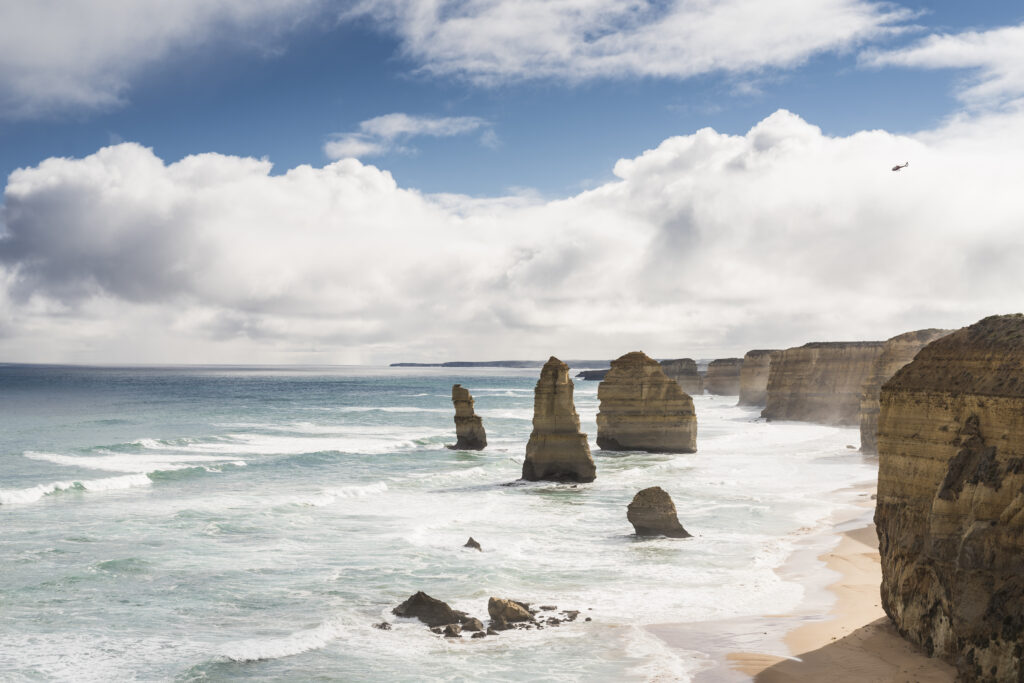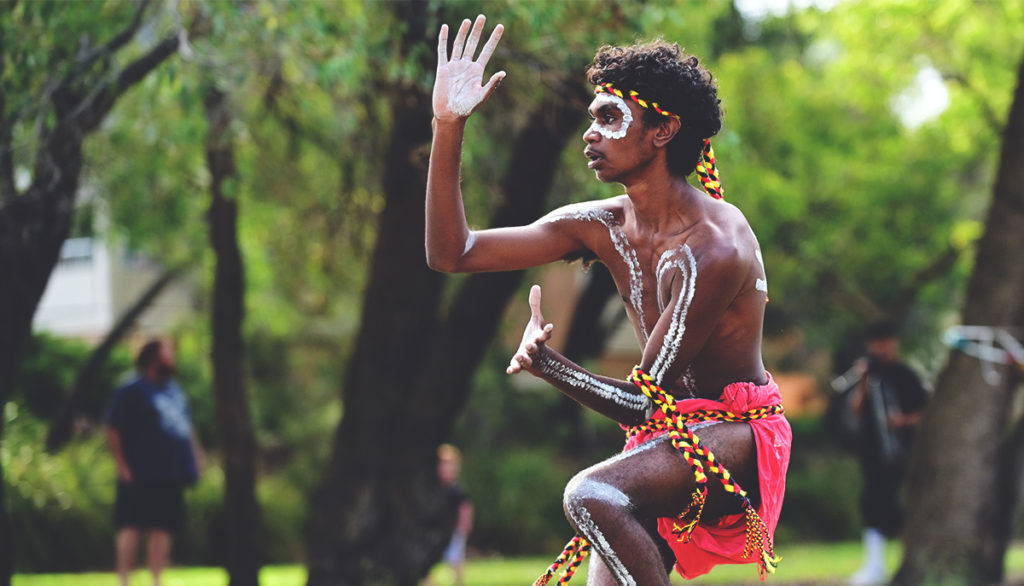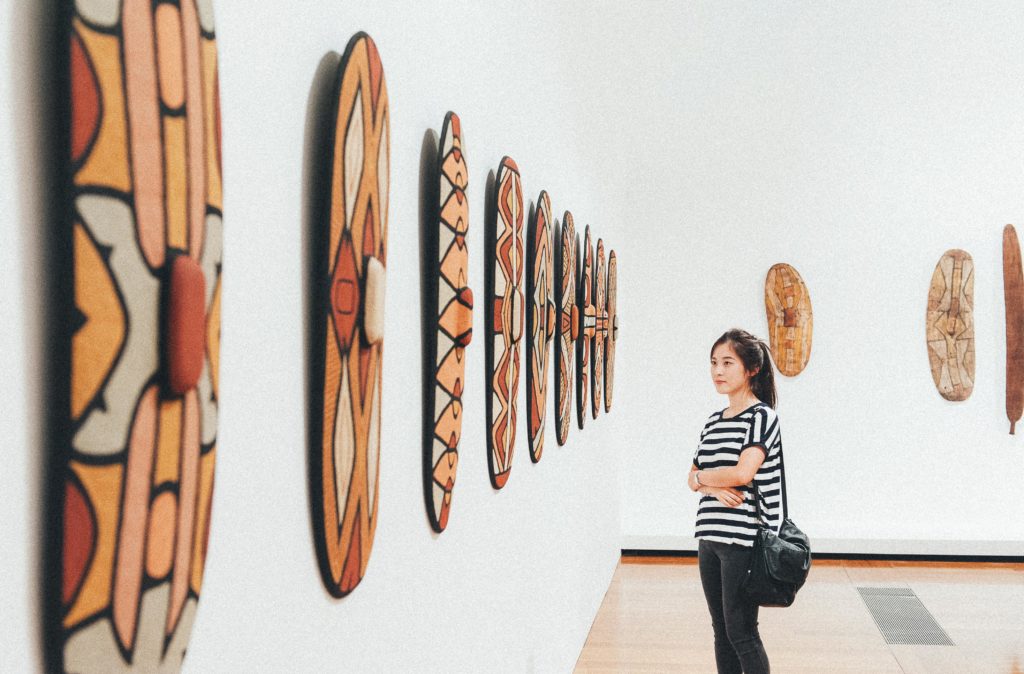In a country as big as this one, where do you start when planning the perfect itinerary?
Here’s a quick guide to Australia’s best travel destinations that are sure to impress your family when they come to visit.
Northern Territory
Capital: Darwin
Known for: Uluru, Kakadu National Park, fishing and adventure
The Top End
The lush and rugged landscapes of the Top End offer some of the best things to do in the Northern Territory. In Darwin, head to the market; Parap Village Markets and Mindil Beach Market are open all year round.
Feeling adventurous? Less than two hours outside of Darwin, you will discover Kakadu National Park and Litchfield National Park, where you can explore waterfalls, forests, rock art and connect with the oldest living culture on Earth.
The Red Centre
From Alice Springs, Kings Canyon is a four-hour drive. Here you can marvel at the spectacular views that stretch out along the desert. Three hours onwards, you will arrive at Uluru-Kata Tjuta National Park where one of the world’s most famous natural landmarks awaits you.
Queensland
Capital: Brisbane
Known for: Great Barrier Reef, Australia Zoo, tropical beaches
The Tropical North
The world-famous Great Barrier Reef stretches over 2,300 kilometres along Queensland’s coastline; it’s the world’s largest coral reef and truly breathtaking. Cairns is a great base for exploration; you can enjoy many experiences here such as snorkelling and scuba diving, as well as helicopter and boat tours.
Brisbane and beyond
Brisbane is a large, vibrant city that offers plenty of activities for metropolitan-minded travellers. Check out some world-class art at QAGOMA, or take a scenic tour of the city on a river cruise.
Just over an hour north of Brisbane, you’ll find the Sunshine Coast, famed for its sandy beaches and legendary surfing spots. If you’re a fan of wildlife and a certain Crocodile Hunter, then a day spent at Australia Zoo is the place for you.
New South Wales
Capital: Sydney
Known for: Sydney Opera House, Bondi Beach, Blue Mountains
Sydney and its surrounds
Asking yourself “What is there to do in New South Wales” is one thing, but asking that question for Sydney alone can feel overwhelming. This is your opportunity to tick off the icons: stroll around Circular Quay to see the Sydney Opera House and Sydney Harbour Bridge or bask in the sunshine at Bondi Beach.
Trade the city for nature and head to the Blue Mountains National Park. You can make it a day trip, but with bushwalking, hiking, camping and adventure activities on offer – you may find yourself wanting to stick around.
Canberra, Australia’s capital city, is a three-hour drive from Sydney. See democracy in action at Australian Parliament House or switch on your scientific side at Questacon.
Laid-back lifestyle
New South Wales has a pristine coastline dotted with some seriously laid-back locals. Start in Byron Bay, where you might spot a celebrity milling around, before making your way through towns like Ballina, Lennox Head, Coffs Harbour and Port Macquarie.
Victoria
Capital: Melbourne
Known for: Great Ocean Road, Melbourne Cricket Ground, coffee culture
All roads lead to Melbourne
Some of the best things to do in Victoria are in its bustling capital city, Melbourne. Catch a game of Australian Football (AFL) at the famed Melbourne Cricket Ground. If you love tennis or the Formula One – this is the place to see it. Complete your visit with a day spent roaming the iconic laneways of the city and the massive art collection at the National Gallery of Victoria—all with a cup of coffee in hand, of course.
Hit the highway
A road trip along Victoria’s Great Ocean Road may be more your style. Famous spots include the 12 Apostles, the Great Otway National Park and the idyllic Port Fairy. Take your time and embrace the breezy, dramatic landscape of Australia’s southern coastline.
Tasmania
Capital: Hobart
Known for: MONA, Wineglass Bay, Port Arthur
Old meets new
Ancient sites, colonial architecture and modern art collide in the southernmost part of Australia. Tasmania’s capital – Hobart – may be small, but it is brimming with personality. Some of the best things to do in Tasmania feature here, including the spectacular art gallery MONA and the vibrant Salamanca Market.
Just over an hour away, you’ll find the UNESCO World Heritage-listed historic site Port Arthur – a preserved convict settlement with more than a few ghost stories.
Wonders of nature
If you’re an avid hiker, spend some time in nature by visiting Wineglass Bay and Cradle Mountain-Lake St Clair National Park. Here, the waters are clear, the wildlife thrive and the colours are astounding.
South Australia
Capital: Adelaide
Known for: Kangaroo Island, Barossa Valley, Eyre Peninsula
Southern charm
Renowned for its restaurants, wineries and beaches – South Australia is one of Australia’s best travel destinations. In Adelaide, spend some time relaxing at the beach; Glenelg is very popular and easily accessible via public transport. Henley and Semaphore are a little further afield, but great options too.
Let your senses guide you to the Adelaide Central Market to eat, shop and be inspired. You can be spoiled for choice here – the free audio guide and map offered by the market might help you make some decisions!
For the love of wine
From the iconic Barossa Valley to the magical McLaren Vale, the beauty of these regions is captured perfectly in the wine they produce. Other famous areas include Clare Valley and the Adelaide Hills.
Western Australia
Capital: Perth
Known for: Rottnest Island, Margaret River, The Kimberley
Far-flung places
Covering almost one-third of Australia’s land mass, Western Australia is vast and awe-inspiring. In The Kimberley region, you’ll find unique wildlife, mighty canyons and remote swimming holes. In Broome, you can ride camels on the beach, search for dinosaur footprints and spot rare dolphins in Roebuck Bay.
Adventure down under
From Perth, Rottnest Island is a short ferry ride away—there you can swim, snorkel, hike and bicycle around and encounter the famous residents of the island – quokkas.
What do I need to prepare for my visitors?
Regardless of which region you travel to, here are some important things to consider when preparing for your adventure:
Transport and time
Australia is an enormous country – travelling between destinations often requires time and patience. Consider your budget and how long your family are visiting for, it will help guide your itinerary.
Health insurance
If adventure calls, it’s a good idea to keep you and your family insured during the trip.
Bupa’s Explorer Visitors Cover can help give members peace of mind by covering costs so that they can access quality healthcare during their stay in Australia. Most hospital treatments, blood tests, general practitioners (a doctor who is a consultant in general practice), and specialist appointments are covered for people of any age. If you want additional peace of mind, Explorer 50 Visitors Cover includes Extras cover that can help cover the cost of certain healthcare services that aren’t already included in the cover. Adding Extras cover to health insurance can be a big help with some of the everyday costs for services such as dental, physio, chiro, and optical, because they can add up, fast.
Remember that health insurance is different to travel insurance. Travel insurance is great for short or long holidays, and provides peace of mind with inclusions like overseas medical emergency assistance, cover for unexpected trip cancellations and lost luggage within your specified area or period of cover. Cover types are available for both Domestic and International trips.
Health insurance is designed for those living or working overseas for a prolonged period of time. It helps cover treatment for both emergency and routine healthcare and provides expats with flexibility in terms of choice of doctor and treatment facility; it typically offers coverage for medical treatments, including hospital stays, doctor visits, prescription medications, and other healthcare services.
Wildlife
Travelling around Australia offers so many opportunities to experience unique wildlife. You are visiting their home, so rather than approach, simply observe them from a respectable distance.






